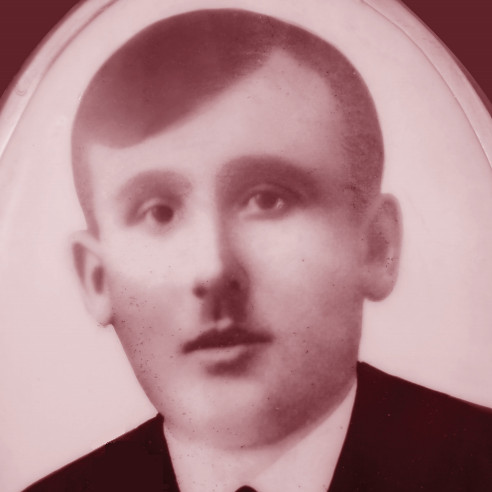Bolesław Książek - Instytut Pileckiego

Bolesław Książek was commemorated by the Pilecki Institute on 25 June 2021 in Olesin.
During the German occupation, Bolesław Książek lived with his wife Aleksandra at the border between the villages of Cezarów and Olesin, both situated in the district of Warsaw. Probably in the spring of 1941, Bolesław Książek gave shelter to a young Jew named Idel, who had escaped from the Warsaw Ghetto. The boy stayed at the Książeks’ property for about two years; they treated him like one of their own. He slept at the house and was provided with food and clothes. Since he helped at the farm pasturing cows, he was often seen by the neighbors. The fact that the Książeks were hiding a Jew was also known to the members of their family and some members of the Blue Police. After some time, the relatives and neighbors began to warn Bolesław that not sending Idel away meant bringing danger on his family. However, Książek would always refuse to do so, explaining that he would never let anyone hurt the boy. For safety reasons, he decided that from that time on his ward would sleep in the barn.
On the morning of 12 May 1943, German gendarmes and blue policemen arrived at the Książeks’ farm. The Germans stormed into the house and began to beat Bolesław, demanding that he confess to hiding a Jew. They tortured him brutally; traces of blood were later found on the walls. Bolesław, however, did not reveal the location of the hideout. The gendarmes dragged him out to the yard and told his wife to bring a rope. Convinced that the Germans wanted to hang both her and her husband, Aleksandra escaped through the window and went across the fields to her father’s house. In this way, she saved her own life.
At the same time, the Germans were conducting a search. Upon hearing all the noise, Idel hid in a threshing machine in the barn. Unfortunately, he was found and dragged out by the gendarmes. They drove him together with the beaten Bolesław Książek toward the nearby forest. Both men were executed about a kilometer from the farm. The German gendarmes murdered Bolesław with several shots to the back of the head; Idel perished at the same time. Their bodies were buried together. At the request of the immediate family, the Germans agreed to the burial of Bolesław in the cemetery in nearby Dębe Wielkie. The funeral took place on the same day. The body of Idel was not moved from the place where he was shot.
Following the execution, the gendarmes confiscated all livestock from the Książeks’ farm. Fearing further repression, Aleksandra stayed with her relatives. It was only after the war that she returned to her house, where she lived and worked with her second husband until her death in 1982.